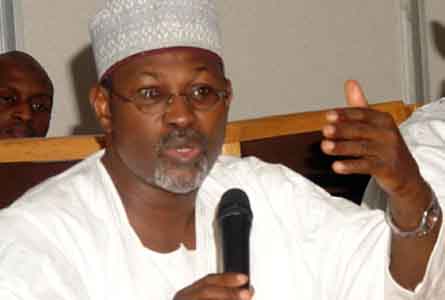The Independent National Electoral Commission said its priority in ensuring that Internally Displaced Persons voted in the forthcoming general elections was for the three North East states ravaged by insurgency.
The Chairman of the commission, Prof. Attahiru Jega, who made this known in Abuja on Monday at a “Katampe Hill Policy Forum”, organized by the African Policy Research Institute, listed the states as Borno, Yobe and Adamawa.
Jega said the commission had gone through series of engagements to design a process that would enable IDPs to vote during the polls.
According to him, INEC now has a plan to provide for the internality displaced persons to vote at secured designated centres without the commission violating provisions of the Constitution.
He said: “We know that there are many internally displaced persons in Nigeria for many causes.
“Our focus is going to be on the North East zone and it will only be on the IDPs that are in the states.
“For those that have left the states, we cannot conceivably begin to prepare for their participation in the elections unless they have used the existing legal framework, which permitted transfer of voting status.
“Unless they were able to do that, at this point, it is too late for us to begin to go round and say, who are those displaced because of flooding or communal conflicts.”
Jega, however, disclosed that the framework developed by the commission could be fine-tuned in future elections, adding: “For 2015, the priority should be on those three states.
“What we are thinking is not to necessarily have them vote inside the camp but will designate centres and encourage persons from particular locations to use that centre to collect their cards and vote.”
The Chairman said the measure, which may appear a bit technical, was achievable, adding that the full details of the commission’s decision would be made available in its next stakeholders’ meeting.
On monitoring of political parties’ election campaigns expenditure, Jega said INEC would monitor, identify and sanction candidates that spent more than specified amount.
He said: “Nigerians are in a hurry.
“They want us to start making judgment about candidates that have either got donations or spent excess funds.
“If you look at the law clearly, you have to wait until the end of the election before you can do the analysis and how the law applies.”
On funding, Jega said the commission did not have any challenge regarding the release of money for the elections.
He said: “Funding in terms of our preparation is no longer an issue.
“We believe we have sufficient money to conduct 2015 general elections.
“But obviously, the release of fund will affect other agencies we are partnering with, like the security agencies that play complementary role.
“Our hope is that this will be borne in mind in terms of the releases that are made to all organizations that are expected to play a key role in the electoral process.”
Jega reiterated that the commission would make all produced permanent voter cards available to the people but expressed the fear that the registered voters may not go to collect them.
Jega denied allegations that some INEC management officials were card-carrying members of political parties and challenged anyone with such evidence to produce it.
Earlier in his speech, the Chairman of the occasion, Prof. Bolaji Akinyemi, called for caution in the involvement of non-Nigerians in the process of solving the country’s problems.
“What do we really gain when we invite so-called experts to address problems in a country of 170 million people,” Akinyemi said.
In his address, the Executive Director of APRI, Sunday Dogonyaro, described the forum as “constructive medium for stakeholders to interpret issues, events and policies” to facilitate public understanding of domestic and international policy issues.
According to Dogonyaro, the theme of the forum: “Policy as a tool for Political Inclusion in Nigeria: INEC and 2015 Elections,” is relevant to the root of development and future of Nigeria.


